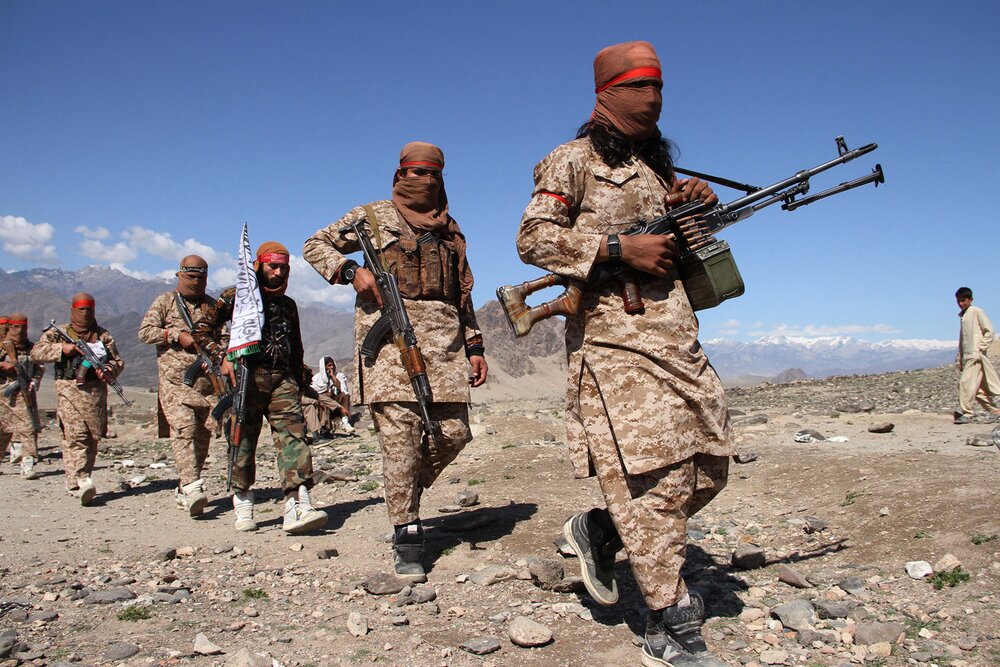Heavy clashes in Afghanistan

TEHRAN – The Taliban seized control of another provincial capital early on Monday to raise the total number of capitals it has overrun so far to five, a major military achievement that marks a strategic shift in the group’s military strategy.
The first indication of this shift emerged on Friday when mainstream media outlets broke the news that the Taliban has captured the first provincial capital in southwestern Afghanistan. On that day, Zaranj, the capital of the southern province of Nimruz, fell to the Taliban without any fighting.
Rouh Gul Khairzad, deputy governor of Nimruz, confirmed the news, saying that the Taliban took Zaranj from government forces without fighting, something that delivered a strong blow to the morale of the Afghan government troops and unleashed a series of military campaigns by the Taliban that led to the conquest of many other provincial capitals across the war-torn country.
By Monday the total number of the provincial capitals that have fallen to the Taliban increased to five, with many other capitals under threat. The Taliban movement seized control of five of the capitals of the thirty-four Afghan provinces, after seizing three of them the previous day, including the city of Kunduz, in a major attack that the Afghan army seemed unable to thwart.
In parallel with its advances in the south, the Taliban also made headway in the north of the country. In Balkh and Takhar, two provinces situated in the north and northeast of Afghanistan, heavy clashes between the Taliban and government forces are underway.
The Afghan Tolo News television network reported on Monday that the clashes are underway in the close vicinity of another important capital city. City sources and the network reported that heavy clashes have been going on in the Dehdadi district of Balkh since Sunday night. The clashes are close to Balkh capital Mazar-e-Sharif city and Pul-e-Imam Bukhari area. There, too, the situation seems fragile. The defense lines will break if reinforcements are not sent to the province, sources from Balkh told the network.
Central parts of the city of Sar-e-Pul and many areas in Kunduz city have also fallen to the Taliban after heavy clashes between the two sides. Taliban attacks on these two northern cities intensified over the last 24 hours after the Taliban took Sheberghan, the provincial capital in Jawzjan, Tolo News reported.
“The only remaining area is held by a regiment in the center of Sar-e-Pul province and (another) in Balkhab district,” said Behzad Haidarizada, a Sar-e-Pul resident.
“The central and local governments have paid no attention. The security forces did not even have food while they were under siege,” said Yar Mohammad Maihanparast, the head of the Sar-e-Pul residents' council in Kabul.
The Afghan government was strongly criticized by lawmakers hailing from Kunduz and Jawzjan. They accused the government of not paying sufficient attention to the situation in the north while the Taliban is intensifying its military campaign. “The Taliban was focused on Kunduz as an important location but the government saw it as a small village,” said Rabbani Rabbani, a member of Kunduz's provincial council.
Recent advancements of the Taliban were indicative of its new strategy. The group intensified its crusade in May but largely remained focused on rural areas and small cities, delaying the battle for provincial capitals until the proper time. Now, it seems that the Taliban thinks the time has come for it to gradually take over the major cities. They are currently going after provincial capitals one after another with Kabul is more likely to be the last and biggest battle.
The overall mayhem in neighboring Afghanistan aroused much concern in Iran, which has expressed its readiness to facilitate a peaceful resolution of the conflict. “Iran is deeply concerned about the developments in Afghanistan. The Islamic Republic of Iran has always considered the security of Afghanistan as its own security and has used all its facilities and capacities to contribute to the peace, stability, and tranquility of Afghanistan at bilateral, regional, and international levels,” Saeed Khatibzadeh, spokesman for the Iranian Foreign Ministry, said on Monday.
“In this context, we are ready and willing to pursue the Tehran Peace Initiative to form an inclusive government in a genuine intra-Afghan dialogue, including all the groups that exist in Afghanistan today,” he continued.
The spokesman also urged Afghanistan’s neighbors to engage in regular dialogue about the situation in the war-torn country.
Iran is ready to facilitate and play host to such a dialogue, Khatibzadeh added.
Iran has had contacts with almost all Afghan stakeholders and played host to at least one round of intra-Afghan peace talks. It also held talks with the Taliban in an effort to hear their views on the future of Afghanistan. Iran has always underlined the need to form an all-inclusive government in Afghanistan, one that would include representatives from the Taliban and the Kabul-based Afghan government.
Leave a Comment